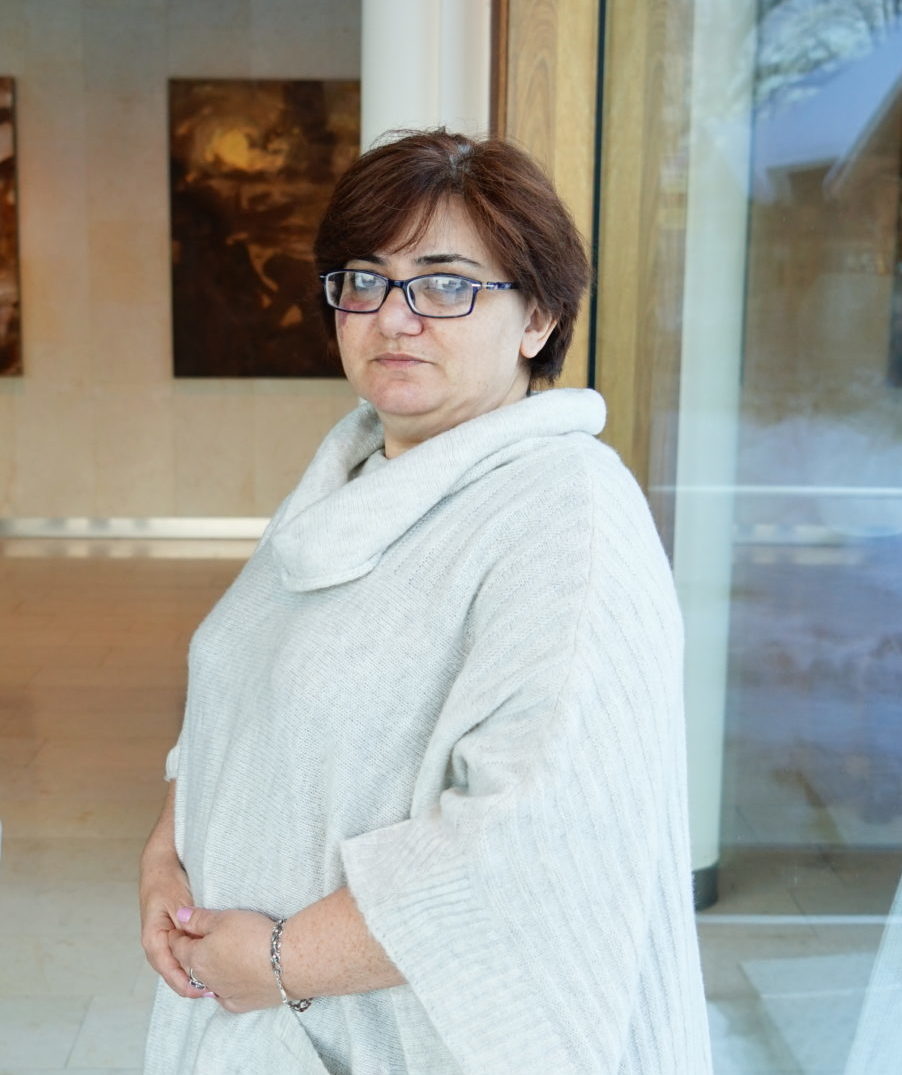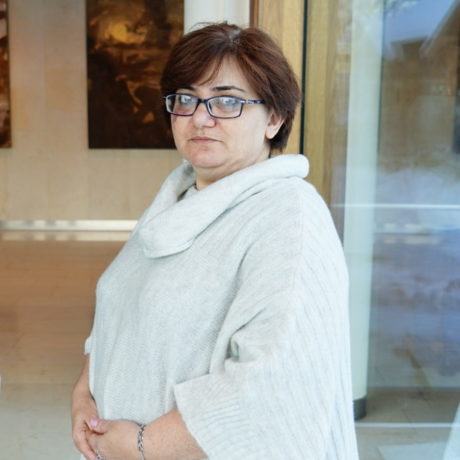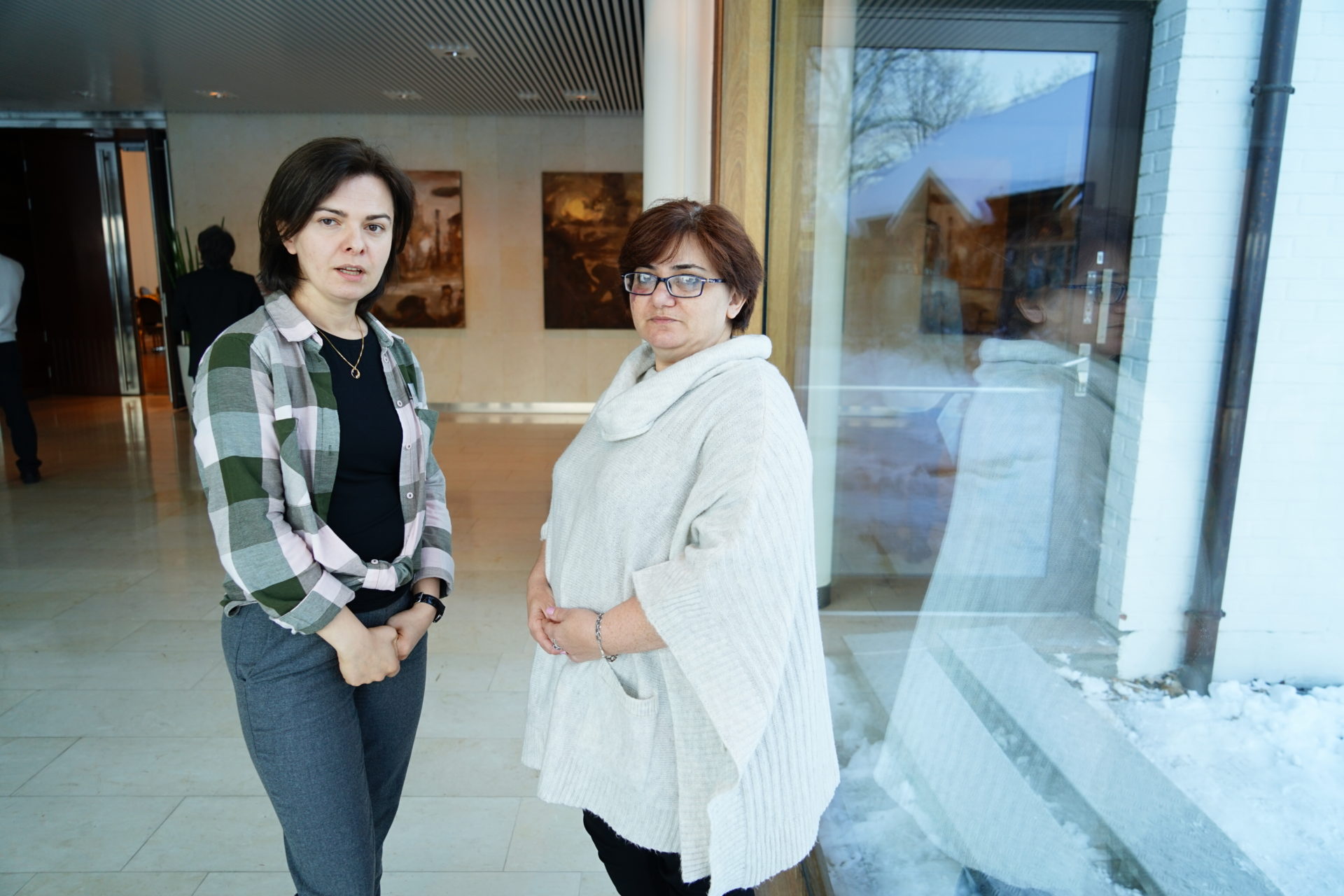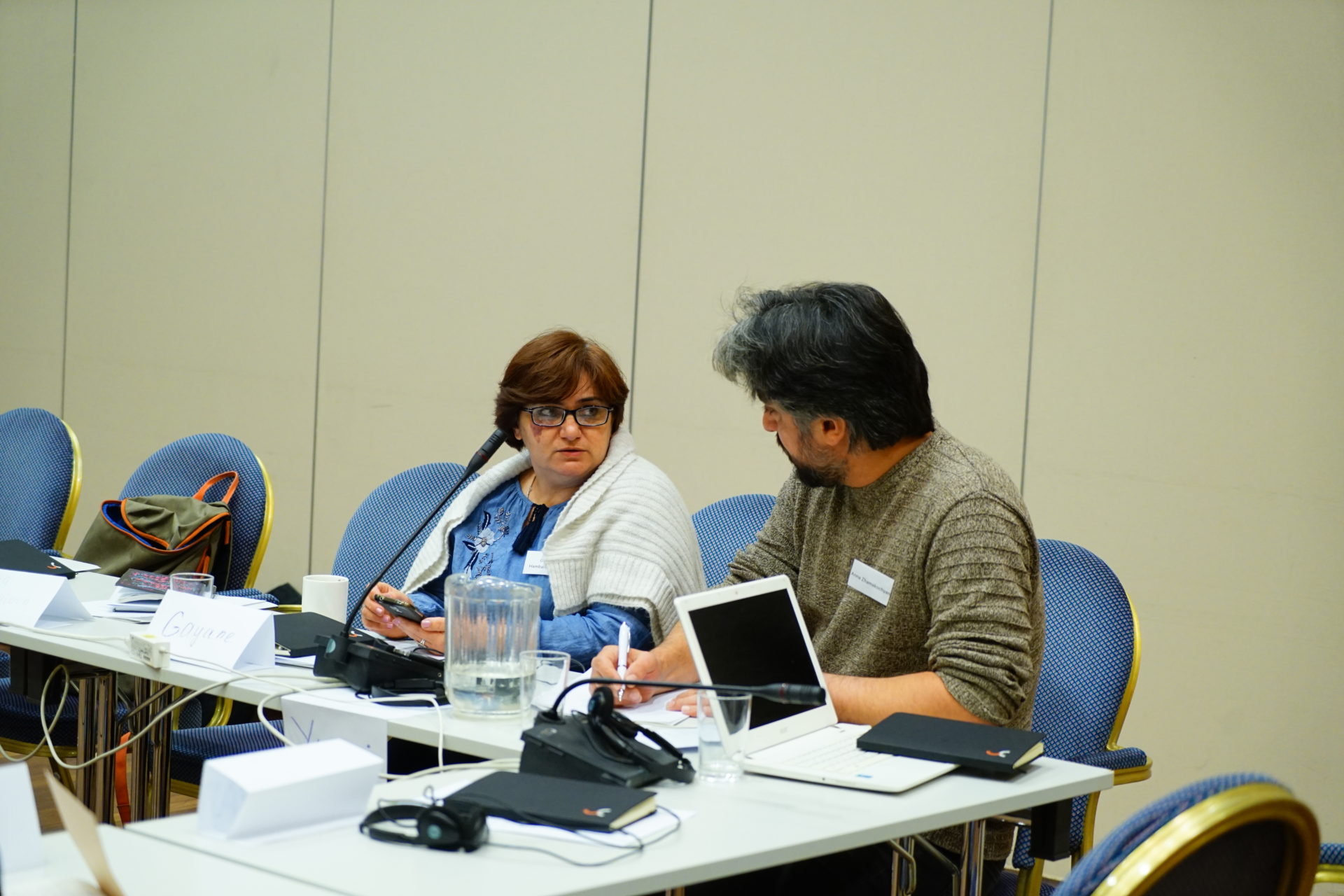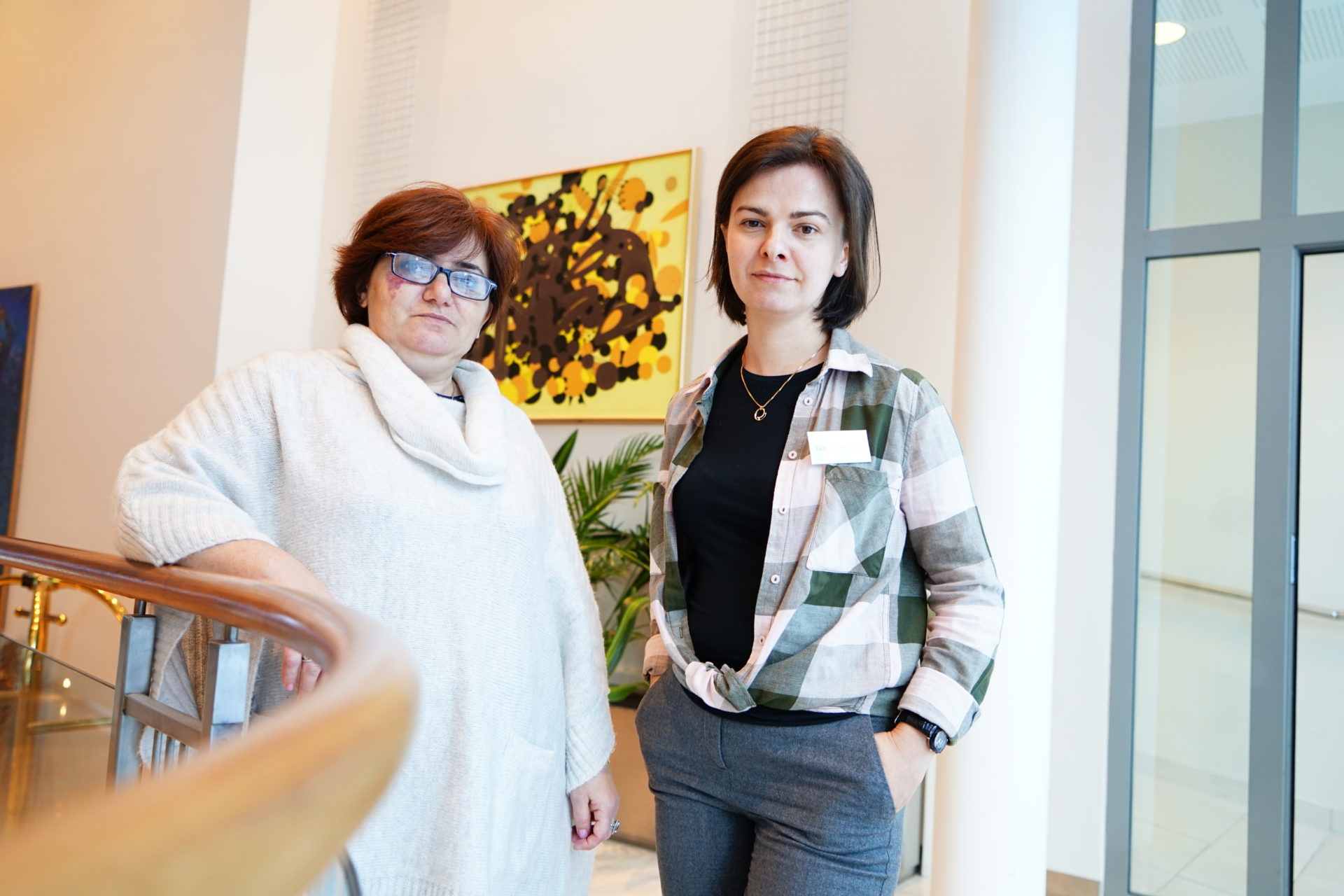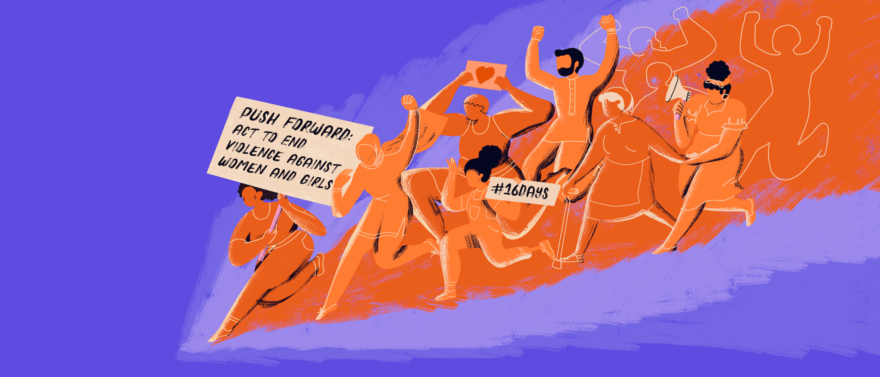
#16 days of activism
- “16 days of activism against gender-based violence” is an annual international campaign to promote women’s human rights, and increase awareness about the devastating impact on gender based violence on women and girls. It kicks off on the International day to eliminate violence against women 25 November, and ends on the Human Rights day 10 December.
- One of the campaign days is the International day of women human rights defenders on 29 November. This day is established to point to both the indispensable role of women in human rights and democracy building, as well as the problems Women human rights defenders are faced with.
- Do you want to know more about 16 days of activism? https://www.unwomen.org/en/what-we-do/ending-violence-against-women/unite/16-days-of-activism
This year, the Norwegian Helsinki Committee uses the campaign 16 days of activism against gender-based violence to promote the work of some of the women human rights defenders that amaze us, and who have found their own way of making the world more equal, one person at the time.
Gayane Hambardzumyan is a human rights defender, working with the womens rights organization Women Resource Center in Armenia. She has been with the organization almost since its beginning, and established their branch in Nagorno-Karabakh. People in this region have been affected by armed conflict since the 1990s and as everywhere else – women are highly affected by conflict, but often left out of conflict resolution.
An important conversation
In 2001, Gayane met Lara Aharonian, who was back then a volunteer from Canada, in Nagorno-Karabakh. They started talking about how people’s lives had been affected by war, and how poor the situation for the refugees was, especially for women. Women rarely have influence on militarization of the society and the warfare itself, but experience the consequences through loss of their homes, their safety, and often close family members. And, even in times of peace, women’s rights were not high on the agenda in the Armenian society.
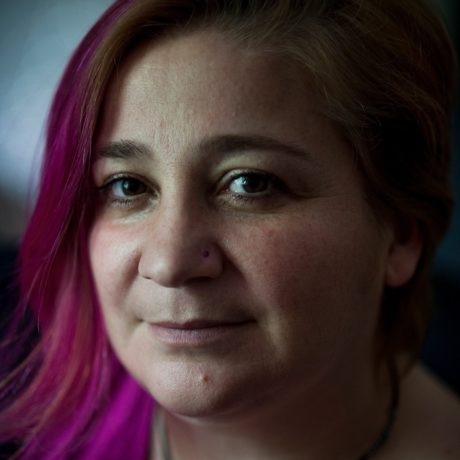
That conversation marked for Gayane a beginning of a lifelong commitment to women’s rights. And when Lara opened the Women’s Resource Center in Armenia, Gayane decided to open the centre’s branch in Nagorno-Karabakh. The center became a place where women could speak freely, a safe space. By now, WRC has become a strong and visible organization, working on advocacy, empowerment and creation of safe spaces. But the road to this has not been straight forward – and it has taken time even to get women’s rights recognized as an issue.
Almost 20 years after that first conversation, the war in 2020 forced Gayane into the same situation as many of the women they were working with – a woman, an activist – and fleeing. The capital of Armenia, Yerevan became her new home.
One foot after the other
Gayane’s main insight with creation of the centre, was that changing the formal system head-on was not possible. She had to start by putting one foot ahead of the other, changing women’s attitudes and thresholds of talking about domestic problems, including gender-based violence, one by one.
Just the fact that they could talk about it without being condemned was a huge help. Slowly, we started talking about equal rights
Gayane Hambardzumyan
To this day, opening of a safe space for women to speak about their challenges, is something Gayane sees as her greatest achievement. Lack of socially accepted alternatives to air out family issues, including violence, inevitably leads to more conflict. Women that were not ready to speak themselves, could learn that someone else was going through the same experience, and know, that they were not alone. Moreover, the center became a place you could come for complete support and good advice.
Victims of patriarchy
Still, it took time for Gayane to recognize that the work she was doing was human rights activism, and that she herself was a human rights defender. Working in Nagorno-Karabakh it was hard to get recognition for women’s rights work. “Nobody wanted to acknowledge me as a human rights activist there”, she says.
She is cautiously hopeful about a more positive attitude to activists like herself from the authorities in Armenia today, which had until recently looked at them with suspicion. The larger society’s condemnation of women like Gayane is more troubling. The main difference between being a female and male activist is mostly embedded in society’s patriarchal structure, as she sees it. But according to Gayane, Armenian men are also victims of the patriarchy.
“They are so afraid to lose the power they have, that they don’t realize the most important thing is peace.”
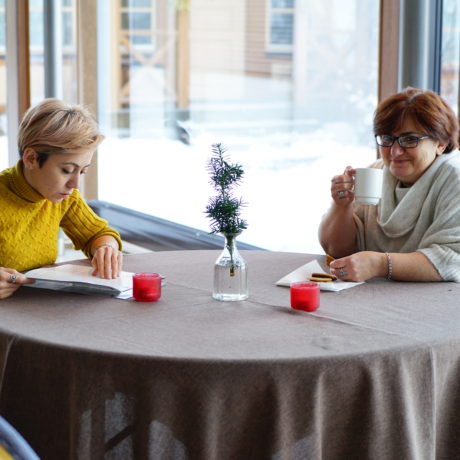
Starting over
In many ways, Gayane had to start from scratch when she came to Yerevan. But what she brought with her to her new hometown, was experiences of living through conflict, and having to leave your home – which proved itself valuable in Yerevan. They have now started working not only with those fleeing from Syria, Iran and other areas, but also Armenian women affected by the war.
According to Gayane, the non-governmental sector in today’s Armenia is the only one able to provide adequate and professional help to activists in trouble. The authorities simply do not possess the necessary experience, knowledge of protection mechanisms and the stamina necessary to complete this marathon.
And, coming back to that first significant conversation with Lara in 2001, about the personal experiences that was soon to be transformed into life long activism – Gayane is certain about what young women and girls in a patriarchal world needs to remember, when brought up learning that they are not significant: “Love yourself and take care of yourself. Value yourself and respect yourself, because then others will also treat you with respect.”
The role of people like Gayane, and organizations like WRC is recognized by significant human rights resolutions. One of them is the landmark Security Council resolution on Women, peace and Security, Resolution 1325, which underlines that human rights defenders like her are pivotal to resolving war and conflict. And the UN General Assembly have also adopted Resolution 68.181 urging that women human rights defenders gain the necessary protection they need, connected to the additional risk they face in comparison with other human rights defenders.
If you want to learn more about the situation in Nagorno-Karabakh, you can read the Norwegian Helsinki Committee report Disputed territories – disputed rights here.
For more information, please contact:
Employee
Lene Wetteland
Employee
